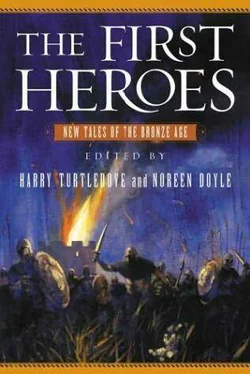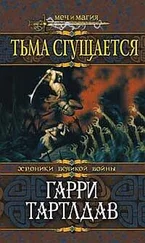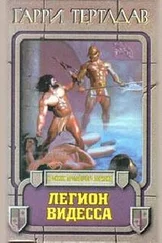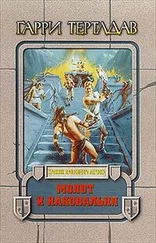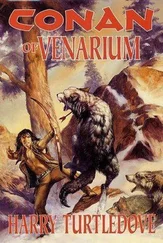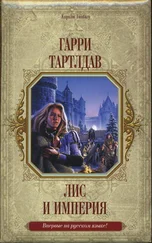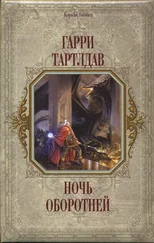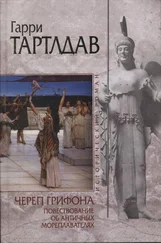Гарри Тертлдав - The First Heroes
Здесь есть возможность читать онлайн «Гарри Тертлдав - The First Heroes» весь текст электронной книги совершенно бесплатно (целиком полную версию без сокращений). В некоторых случаях можно слушать аудио, скачать через торрент в формате fb2 и присутствует краткое содержание. Жанр: Фантастика и фэнтези, на английском языке. Описание произведения, (предисловие) а так же отзывы посетителей доступны на портале библиотеки ЛибКат.
- Название:The First Heroes
- Автор:
- Жанр:
- Год:неизвестен
- ISBN:нет данных
- Рейтинг книги:3 / 5. Голосов: 1
-
Избранное:Добавить в избранное
- Отзывы:
-
Ваша оценка:
- 60
- 1
- 2
- 3
- 4
- 5
The First Heroes: краткое содержание, описание и аннотация
Предлагаем к чтению аннотацию, описание, краткое содержание или предисловие (зависит от того, что написал сам автор книги «The First Heroes»). Если вы не нашли необходимую информацию о книге — напишите в комментариях, мы постараемся отыскать её.
The First Heroes — читать онлайн бесплатно полную книгу (весь текст) целиком
Ниже представлен текст книги, разбитый по страницам. Система сохранения места последней прочитанной страницы, позволяет с удобством читать онлайн бесплатно книгу «The First Heroes», без необходимости каждый раз заново искать на чём Вы остановились. Поставьте закладку, и сможете в любой момент перейти на страницу, на которой закончили чтение.
Интервал:
Закладка:
"Fauns are not mockeries of us. They are themselves. If you expect them to behave the way we do, you'll get a nasty surprise. If you expect them to act the way they really do, everything will be fine—as long as you keep an eye on them."
He did not like that. I had not expected that he would. But then, after what passed for reflection with him, he brightened. "If they give me a hard time, I'll bash them."
"Good," I said. It might not be good at all—it probably would not be good at all, but telling Oreus not to hit something was like telling the sun not to cross the sky. You could do it, but would he heed you?
I did not want to come ashore among the fauns at all. But rowing is thirsty work, and our water jars were low. And so, warily, with archers and spearers posted at the bow, I brought the Chalcippus toward the mouth of a little stream that ran down into the sea.
As I say, fauns are brutes. They scarcely know how to grow crops or work copper, let alone bronze. But a stone arrowhead will let the life out of a he as well as any other. If they gave us trouble, I wanted to be ready to fight or to trade or to run, whichever seemed the best idea at the time.
It turned out to be trade. Half a dozen fauns came upon us as we were filling the water jars—and, being hes on a lark, splashing one another in the stream like a herd of foals. The natives carried spears and arrows, which, sure enough, were tipped with chipped stone. Two of them also carried, on poles slung over their shoulders, the gutted carcass of a boar.
"Bread?" I called to them, and their faces brightened. They are so miserable and poor, they sometimes grind a mess of acorns up into flour. Real wheaten bread is something they seldom see. For less than it was worth, I soon got that lovely carcass aboard the Horse of Bronze. My crew would eat well tonight. Before we sailed, before the fauns slipped back into the woods, I found another question to ask them: "Are the sirens any worse than usual?"
They could understand my language, it being not too far removed from their own barbarous jargon. Their chief—I think that is what he was, at any rate; he was certainly the biggest and strongest of them— shook his head. "No worser," he said. "No better, neither. Sirens is sirens."
"True," I said, and wished it were a lie.
An island lies west of the land west of ours. Monsters haunt the strait between mainland and island: one that grabs with tentacles for ships sailing past, another that sucks in water and spits it out to make whirlpools that can pull you down to the bottom of the sea.
We slipped past them and down the east coast of the island. The gods' forge smoked, somewhere deep below the crust of the world.
What a slag heap they have built up over the eons, too, so tall that snow still clings to it despite the smoke issuing from the vent.
The weather turned warm and then warmer and then hot. We stopped for water every day or two, and to hunt every now and again. There are fauns also on the island, which I had not known and would not have if we had not rushed by them while coursing after deer. Next to them, the fauns of the mainland are paragons of sophistication. I see no way to embarrass them more than to say that, yet they would not be embarrassed if they knew I said it. They would only take its truth for granted.
They have not even the sophistication to regret that which is.
Maybe they were as they were because they knew no better. And maybe they were as they were because the sirens hunt them as we hunted that stag through the woods. We would not be as we are, either, not with sirens for near neighbors.
I wish we would have had nothing to do with them. What a he wishes and what the gods give him are all too often two different things. What the gods gave us was trouble. Hylaeus, Nessus, and I had just killed a deer and were butchering it when a siren came out of the woods and into the clearing where we worked. She stood there, watching us.
I have never seen a siren who was not a she. I have never heard of a siren who was a he. How there come to be more sirens is a mystery of the gods. The one we saw was quite enough.
In their features, sirens might be beautiful shes. Past that, though, there is nothing to them that would tempt the eye of even the most desperately urgent he. They are, not to put too fine a point on it, all over feathers, with arms that are half wings and with tail feathers in place of a proper horse's plume. Their legs are the scaly, skinny legs of a bird, with the grasping claws of a bird of prey.
But the eye is not the only gateway to the senses. The siren asked, "What are you doing here?" A simple question, and I had all I could do not to rear up on my hind legs and bellow out a challenge to the world.
Her voice was all honey and poppy juice, sweet and tempting at the same time. I looked at the other two hes. Hylaeus and Nessus were both staring back at me, as if certain I would try to cheat them out of what was rightfully theirs. They knew what they wanted, all right, and they did not care what they had to do to get it.
I glanced over at the siren. Her eyes had slit pupils, like a lion's. They got big and black as a lion's when it sights prey as she watched us. That put me on my guard, where maybe nothing else would have. "Careful, friends," I said. "She does not ask because she wishes us well." Roughly, I answered the siren: "Taking food for ourselves and our comrades."
By the way she eyed me, we had no need of food; we were food. She said, "But would you not rather share it with me instead?" That voice! When she said something might be so, a he's first impulse was to do all he could to make it so. I had to work hard to ask the siren, "Why should we? What payment would you give us?"
I have lived a long time. One of the things this has let me do is make a great many mistakes. Try as I will, I have a hard time remembering a worse one. The siren smiled. She had a great many teeth. They all looked very long and very sharp. "What will I do?" she crooned. "Why, I will sing for you."
And she did. And why I am here to tell you how she sang . . . That is not so easy to explain. Some small beasts, you will know, lure their prey to them by seeming to be something the prey wants very much. There are spiders colored like flowers, but woe betide the bee or butterfly who takes one for a flower, for it will soon find itself seized and poisoned and devoured.
Thus it was with the siren's song. No she of the centaur folk could have sung so beautifully. I am convinced of it. A she of our own kind would have had many things on her mind as she sang: how much she cared about the hes who heard her, what she would do if she did lure one of them—perhaps one of them in particular—forward, and so on and so on.
The siren had no such . . . extraneous concerns. She wanted us for one thing and one thing only: flesh. And her song was designed on the pattern of a hunting snare, to bring food to her table. Any doubts, any second thoughts, that a she of our kind might have had were missing here. She drew us, and drew us, and drew us, and . . .
And, if one of us had been alone, she would have stocked centaur in her larder not long thereafter. But, in drawing Nessus and Hylaeus and me all with the same song, she spread her magic too thin to let it stick everywhere it needed to. Nessus it ensnared completely, Hylaeus perhaps a little less so, and me least of all. Why this should be, I cannot say with certainty. Perhaps it is simply because I have lived a very long time, and my blood does not burn so hotly as it did in years gone by.
Or perhaps it is that when Nessus made to strike at Hylaeus, reckoning him a rival for the charms of the sweetly singing feathered thing, the siren was for a moment distracted. And its distraction let me move further away from the snare it was setting. I came to myself, thinking, Why do I so want to mate with a thing like this? I would crush it and split it asunder.
Читать дальшеИнтервал:
Закладка:
Похожие книги на «The First Heroes»
Представляем Вашему вниманию похожие книги на «The First Heroes» списком для выбора. Мы отобрали схожую по названию и смыслу литературу в надежде предоставить читателям больше вариантов отыскать новые, интересные, ещё непрочитанные произведения.
Обсуждение, отзывы о книге «The First Heroes» и просто собственные мнения читателей. Оставьте ваши комментарии, напишите, что Вы думаете о произведении, его смысле или главных героях. Укажите что конкретно понравилось, а что нет, и почему Вы так считаете.
